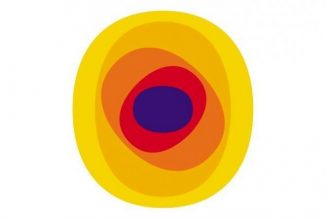Economy
State eyes telco profits in tighter dominance rules
Tuesday May 30 2023
The Communications Authority of Kenya (CA) will start scrutinising prices telecom operators charge in relation to their profits when deciding abuse of market dominance in proposed changes to competition regulations. FILE PHOTO | SHUTTERSTOCK
The Communications Authority of Kenya (CA) will start scrutinising prices telecom operators charge in relation to their profits when deciding abuse of market dominance in proposed changes to competition regulations.
Under the draft regulations that are on public reviews, telcos with high charges for services despite significant profitability will be deemed to abuse market dominance.
“Abuse of a dominant position in a relevant market shall without limitation include charging excessively high prices taking into account a reasonable level of profits,” reads part of the draft fair competition regulations signed by ICT Cabinet Secretary Eliud Owalo.
Previously, the fair competition regulations did not explicitly describe instances constituting an abuse of power by dominant market players.
The CA did not respond to our inquiries on the motivation behind the latest proposals but the new rules have been met with opposition from industry practitioners who see the changes as a new attempt to go after Safaricom, the country’s leading telecoms provider.
Kenya has three major telcos— Safaricom, Airtel and Telkom Kenya— but it is Safaricom that has been on the receiving end when it comes to the dominance debate.
“I think this is another attempt to go after Safaricom and it adds to the same debate we have been having as players as to whether we are punishing innovation and hard work. People must be allowed to innovate and the government must look at alternative methods on how the benefits of dominance can be transferred to the benefit of the economy,” Grace Githaiga, the CEO and Convenor at the Kenya ICT Action Network (KICTANet) told the Business Daily.
The rules in place only cover telcos’ profitability in the declaration of a dominant market player where a licensee making ‘supernormal profits’ is deemed as dominant.
However, ICT players fear the rule may be used to go after profitable ventures.
“This provision sets a dangerous precedent that would present the opportunity for rent-seeking behaviour,” added Ms Githaiga.
Read: Regulator allowed to install mobile phone spying gadget
The draft has been prompted by the review of the Kenya Information and Communications Act of 1998 that backs current regulations with the evaluation underway.
By explicitly defining instances amounting to the abuse of dominance by telco players, the State will be once again pointing its guns at big firms on their potential abuse of dominance.
Last month, for instance, the government moved to raise the threshold for telecoms firms to be declared dominant to more than half of the gross turnover of the entire market from 25 percent in a different set of draft regulations.
The lack of explicit abuse of dominance instances has made it difficult for the CA to either declare an operator dominant or punish the abuse of market dominance.
Additional provisions in the draft regulations further clear up conditions resulting in the declaration of dominance including operators whose market share is at least 50 percent as determined by revenues, subscribers, and sales such as airtime traffic and capacity.
The move by the government to contrast prices charged by operators to their respective profitability levels aligns to previous independent dominance studies by the CA that called for additional quantitative and qualitative factors in assessing market power.
A 2018 competition market study by Analysys Mason, for instance, lists product prices and profitability, economies of scale and scope, and the ability of customers to switch suppliers as additional factors in probing market power.
The draft regulations further list margin-squeeze as behaviour equating it to abuse of dominance.
“Margin squeeze means the abuse of dominance where a dominant telecommunications service provider sets retail and underlying wholesale prices that the retail price is lower than the sum of the wholesale price and the reasonable cost of transforming the wholesale service into the retail service,” added the draft regulations.
The new proposals further list exclusionary bundling and the refusal by an operator to supply its competitors on reasonable terms as additional acts of abuse of market dominance.
Impending the movement of customers to the products or services of other licensees through exclusive agreements, excessive exit payments, contract duration, and implicit or explicit discounts are also listed as instances of abuse of dominance.
Requiring a party to supply, purchase or distribute products or services exclusively is also to be deemed as abuse of dominance when the effect of the exclusivity equals unfairly preventing, restricting or distorting competition.
Read: Safaricom posts third profit fall to Sh52.5 billion
Proposed changes to the dominance rules come against the relentless pressure from Safaricom’s rivals to have the government declare the firm dominant with the view of ensuring the competitors are not swept out of the market.
Safaricom has maintained that it should not be punished for being the market leader, insisting it does not hinder competition.
At the end of December last year, Safaricom had a significant 66 percent share of mobile (SIM) subscriptions and a 96.8 percent stranglehold on mobile money accounts.









